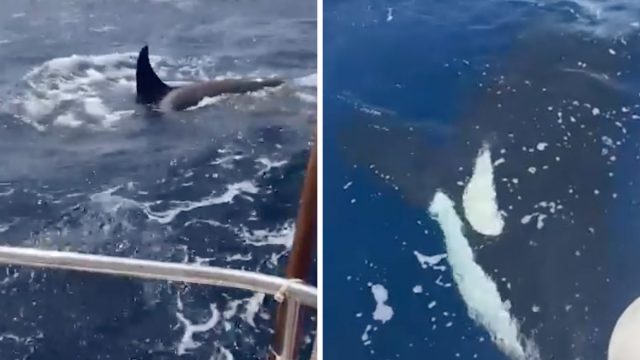“Traumatized” Killer Whale is Teaching Young to Attack Boats, Eyewitnesses Claim
Orca attacks frequent and increasing.
In the latest nature news that sounds like a horror movie but is actually real, killer whales are attacking and sinking boats in Europe, and scientists believe older whales are showing their young how to do it. Dozens of orca attacks have been reported in the Strait of Gibraltar since 2020; one of the latest occurred on May 4, when three orcas attacked a yacht and pierced the rudder, LiveScience reported.
“There were two smaller and one larger orca,” skipper Werner Schaufelberger told the German publication Yacht. “The little ones shook the rudder at the back while the big one repeatedly backed up and rammed the ship with full force from the side.” Read on to find out what happened in that attack, and why scientists say orca attacks are becoming more frequent.

The skipper of the ship in the May 4 attack said he saw the smaller orcas imitate the larger one. “The two little orcas observed the bigger one’s technique and, with a slight run-up, they too slammed into the boat.” The Spanish coast guard rescued the crew and towed the boat to port, where it sank.
Two days earlier, a pod of six orcas attacked another sailboat in the strait. Greg Blackburn, who was aboard, said a mother orca seemed to be teaching her youngster how to charge the rudder. “It was definitely some form of education, teaching going on,” he told 9news.
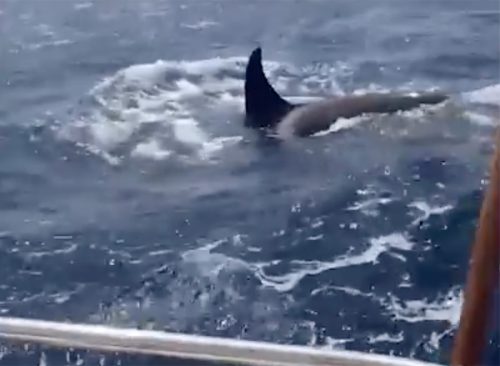
Boaters began encountering aggressive orcas off the Iberian coast in May 2020. Between July and October 2020, there were at least 40 orca incidents involving sailboats around Spain and Portugal, the Maritime Executive reported. And these run-ins are becoming more commonplace, according to a new study in the journal Marine Mammal Science.
“The reports of interactions have been continuous since 2020 in places where orcas are found, either in Galicia or in the Strait,” said study co-author Alfredo López Fernandez, a biologist at the University of Aveiro in Portugal. The attacks seem to follow a pattern: Orcas approach from the stern, striking the rudder, then backing off when they’ve successfully stalled the boat.
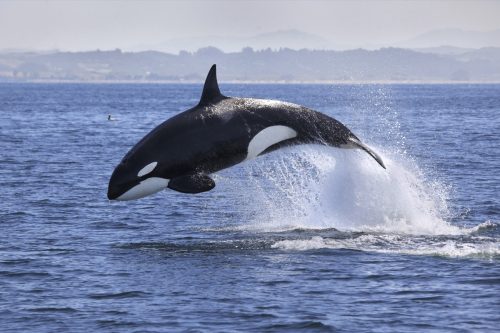
Scientists think one traumatized orca may have started it all. A killer whale dubbed White Gladis by researchers may have experienced a “critical moment of agony,” colliding with a vessel or somehow becoming trapped, that “flipped a behavioral switch,” causing them to attack, said Fernandez.
“That traumatized orca is the one that started this behavior of physical contact with the boat,” he said. “The orcas are doing this on purpose, of course. We don’t know the origin or the motivation, but defensive behavior based on trauma, as the origin of all this, gains more strength for us every day.”
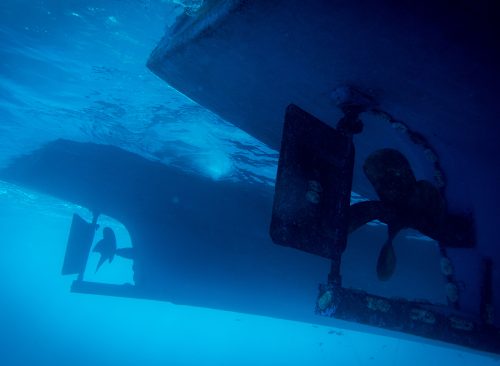
Orcas are social creatures that can quickly learn and copy behaviors they observe. In most of these attacks, orcas have been laser-focused on a boat’s rudder, biting, bending, or breaking it.
“We do not interpret that the orcas are teaching the young, although the behavior has spread to the young vertically, simply by imitation, and later horizontally among them, because they consider it something important in their lives,” said López Fernandez
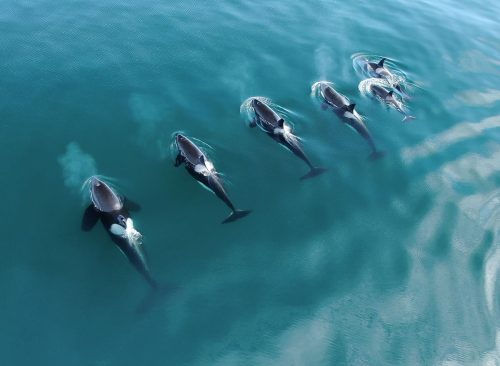
The attacks could also be playful or what researchers call a “fad” — a behavior initiated by a few and picked up by others before it’s abandoned. “They are incredibly curious and playful animals and so this might be more of a play thing as opposed to an aggressive thing,” Deborah Giles, an orca researcher at the University of Washington and at the non-profit Wild Orca, told Live Science.
